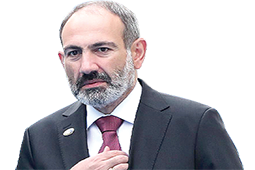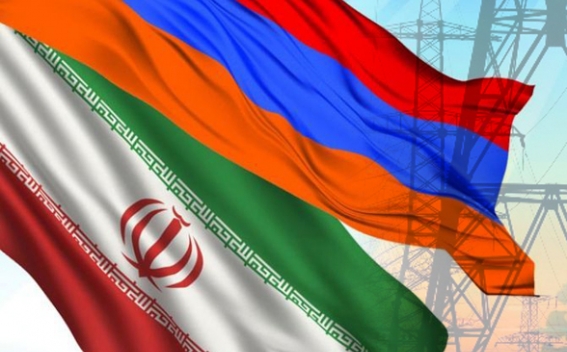
No Need to Make Changes in Iran-Armenia Economic Ties Over US Sanctions


“We don’t see the need to make any change in them. We need not only maintain the good level of these relations, but also to raise them to a new level,” the acting Prime Minister of Armenia, Nikol Pashinyan, was quoted as saying in a press conference by Armenpress on Tuesday.
He was commenting on the US Embassy statement that a group of American experts on sanctions policy against Iran visited Armenia recently, Armenian news agency News Am reported.
“We need to intensively develop those relations [with Iran], and those relations should be mutually beneficial,” Pashinyan said.
“We have presented our interests in Armenian-Iranian and Armenian-Georgian relations. I hope that our American associates are treating our situation and policy with understanding because developing Armenian-American relations at a good pace is very important to us.”
"The Central Bank of Armenia does not prohibit banks from serving citizens of the Islamic Republic of Iran with any directive or normative act,” the CBA said in written comments to Public Radio of Armenia.
According to the law, the Armenian banks have to carry out customer risk assessment, classify those who are in contact with non-complying countries as high-risk customers and take steps to conduct a deeper analysis.
The central bank said banks might refrain from serving a group of customers, taking onto consideration the restrictions enforced by partner and correspondent banks and does not rule out citizens of Iran could be among such clients.
With Armenia’s borders with Azerbaijan and Turkey closed due to the Nagorno-Karabakh conflict, Iran and Georgia serve as the sole conduits for the landlocked country’s trade with the outside world.
Armenia also imports Iranian natural gas and other fuel. The volume of gas supplies should rise sharply after the ongoing construction of a third power transmission line connecting the two countries is completed next year.
Accordingly, both the current and former Armenian governments have supported a 2015 multilateral accord on Iran’s nuclear program that led to the lifting of international sanctions against Tehran. Trump unilaterally pulled out of that deal earlier this year.
Last month, Pashinyan expressed readiness to help strengthen commercial ties between Iran and the Eurasia Economic Union.
“This year, EEU member states and Iran signed an interim agreement as a first step for the formation of an Iran-EEU free trade zone. Armenia is the only EEU member state that has a land border with Iran," he said.
Iran and the Eurasian Economic Union are looking to substantially increase trade, as the two sides signed a three-year provisional agreement on May 17 for the bloc to welcome Iran into EEU.
"The presence of common border and the formation of free trade zone with Iran are an additional impetus for the development of commercial and economic ties," Pashinyan concluded.


Trump weighs using $2 billion in CHIPS Act funding for critical minerals

Codelco cuts 2025 copper forecast after El Teniente mine collapse

Electra converts debt, launches $30M raise to jumpstart stalled cobalt refinery

Barrick’s Reko Diq in line for $410M ADB backing

Abcourt readies Sleeping Giant mill to pour first gold since 2014

Nevada army depot to serve as base for first US strategic minerals stockpile

SQM boosts lithium supply plans as prices flick higher

Viridis unveils 200Mt initial reserve for Brazil rare earth project

Tailings could meet much of US critical mineral demand – study

Kyrgyzstan kicks off underground gold mining at Kumtor

Kyrgyzstan kicks off underground gold mining at Kumtor

KoBold Metals granted lithium exploration rights in Congo

Freeport Indonesia to wrap up Gresik plant repairs by early September

Energy Fuels soars on Vulcan Elements partnership

Northern Dynasty sticks to proposal in battle to lift Pebble mine veto

Giustra-backed mining firm teams up with informal miners in Colombia

Critical Metals signs agreement to supply rare earth to US government-funded facility

China extends rare earth controls to imported material

Galan Lithium proceeds with $13M financing for Argentina project

Kyrgyzstan kicks off underground gold mining at Kumtor

Freeport Indonesia to wrap up Gresik plant repairs by early September

Energy Fuels soars on Vulcan Elements partnership

Northern Dynasty sticks to proposal in battle to lift Pebble mine veto

Giustra-backed mining firm teams up with informal miners in Colombia

Critical Metals signs agreement to supply rare earth to US government-funded facility

China extends rare earth controls to imported material

Galan Lithium proceeds with $13M financing for Argentina project

Silver price touches $39 as market weighs rate cut outlook

















